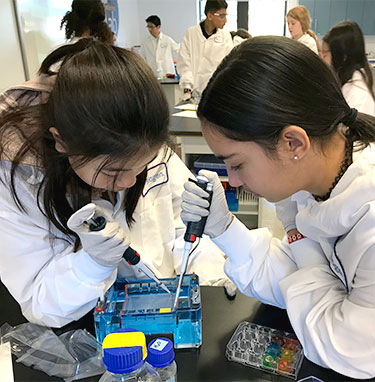The Middle School provides an environment that is sensitive to the emotional and academic needs of the adolescent. Emphasis is placed on helping each student understand their own learning style and using this information to further develop their mind. Knowing that this can be a vulnerable period in a child’s life, teachers and students work together to constantly strengthen their community with the values of respect and kindness.
The low student teacher ratio allows for individualized instruction, a natural work pace for mastery and emotional understanding, ample time for project-based work and time to study art, music, business and other topics. Students are guided through time management exercises to help them balance the expectations and requirements of school and those from their personal lives. Acquiring this life skill during these years sets a strong foundation for personal and professional success.
Students at ASM demonstrate what they’ve learned in a multitude of formats, including work with Montessori materials, conducting labs and experiments, engaging in project based work, writing essays and discussing what they’ve learned in groups. Learning this way allows students to collaborate, create and problem-solve, and are all forms of assessment even though they may not look like the familiar quiz or test. Learning outcomes that require higher order thinking can’t be assessed in a multiple choice testing format, which measures student achievement based on small bits of information that are easily scored.
The skills that students need to acquire as they journey down their path of education are the ability to critically think and analyze, and apply the information they’ve learned to real-life problems. At ASM, your child will be assessed through daily teacher observations, discourse, essay writing, and the use of project rubrics.
Click here to view our Secondary School Placement list to see where ASM graduates continue their educational journey!






